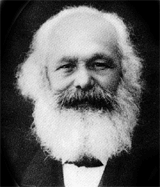 |
Català
| Castellano
| English
| Français
| Deutsch
| Italiano
| Galego
| Esperanto
En aquest lloc «web» trobareu propostes per fer front
a problemes econòmics que esdevenen en tots els estats del món:
manca d'informació sobre el mercat, suborns, corrupció,
misèria, carències pressupostàries, abús de
poder, etc.
|
 |
|
Chapter 21. Background and empirical confirmations. The hypothesis of a communal utilitarianism or of a commercial common good in fact is no piece of news. Careful studies could demonstrate that already Plato had in some way sensed the possibility of sharing the private wealth present in the private market.
But when the present-day economists mention the residual market value, it is clear that they are fully touching on the subject. By residual factor a production factor is meant which explains all that production part which cannot be explained through the classical production factors. This part is the highest when a country is more technologically and culturally advanced. Now, the attempts to a strict quantification of the residual factor have always failed, through lack of a suitable measuring instrument. Our modest claim is to offer the measuring instrument of the elemental phenomena of the monetary market and society, which will allow to rigorously formulate the hypothesis and to be able to experimentally confirm or invalidate it. Besides the theoretical background of the hypothesis of the mercantile common good which we have just mentioned, this hypothesis has an empirical basis of facts, evident to the eyes of the least prepared observer, which represent an almost palpable demonstration which grants it a high degree of probability, independently from the necessary pro-scientific experimentation. We refer, fundamentally, to three great facts, of an enormous range and extension in our century, mainly in the countries most progressively industrialized:
This public debt is the appropriation of the common good by the State: it consists of the invention by each Bank and by its Central Bank of a purchasing power which will be used to face the budgetary needs, but which is based on the real productive abilities of the whole geopolitical community -because, if it were not so, these communities, with the very high public debt of their States, would have been totally broke for a long time-. Of these three facts, the first one is a demonstration of the mercantile common good on a production level. The other two are clearly demonstrations as far as money availability is concerned: the legitimate payment owed to the communal production forces is diverted and taken for the state budgets and for the bank's and mutinationals' profits. But since the knowledge of the mercantile common good is not perfect, this diversion, besides being unfair in most cases, it is also imperfect, either for excess or for want, and creates imbalances known as inflation and deflation crises. |
 Marx
himself, when he formulated the idea of increased value, was on its tracks,
but he limited himself to make the analysis of the micro-mercantile processes,
while the mercantile common good can only be comprehended in a macro-mercantile
overview.
Marx
himself, when he formulated the idea of increased value, was on its tracks,
but he limited himself to make the analysis of the micro-mercantile processes,
while the mercantile common good can only be comprehended in a macro-mercantile
overview.